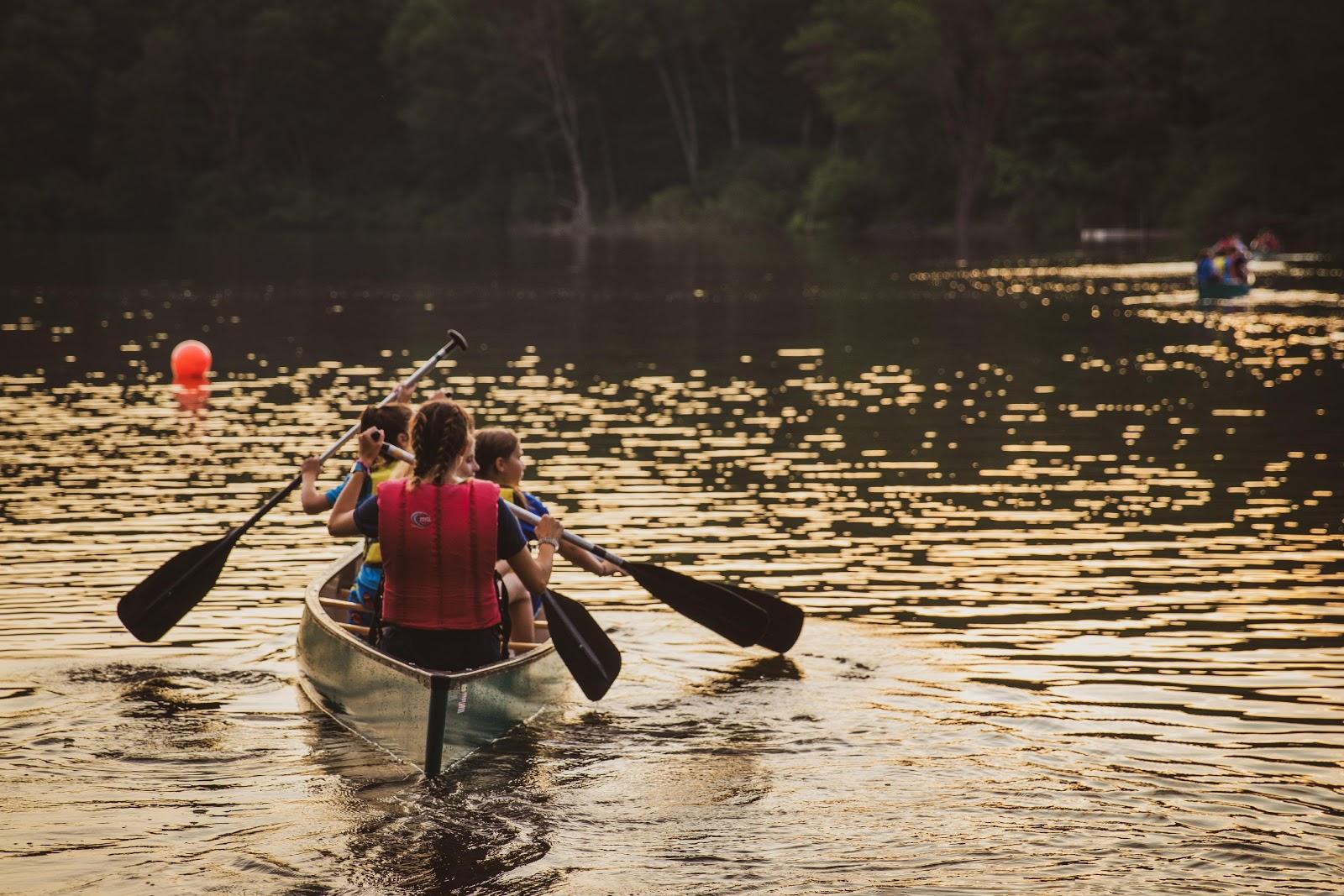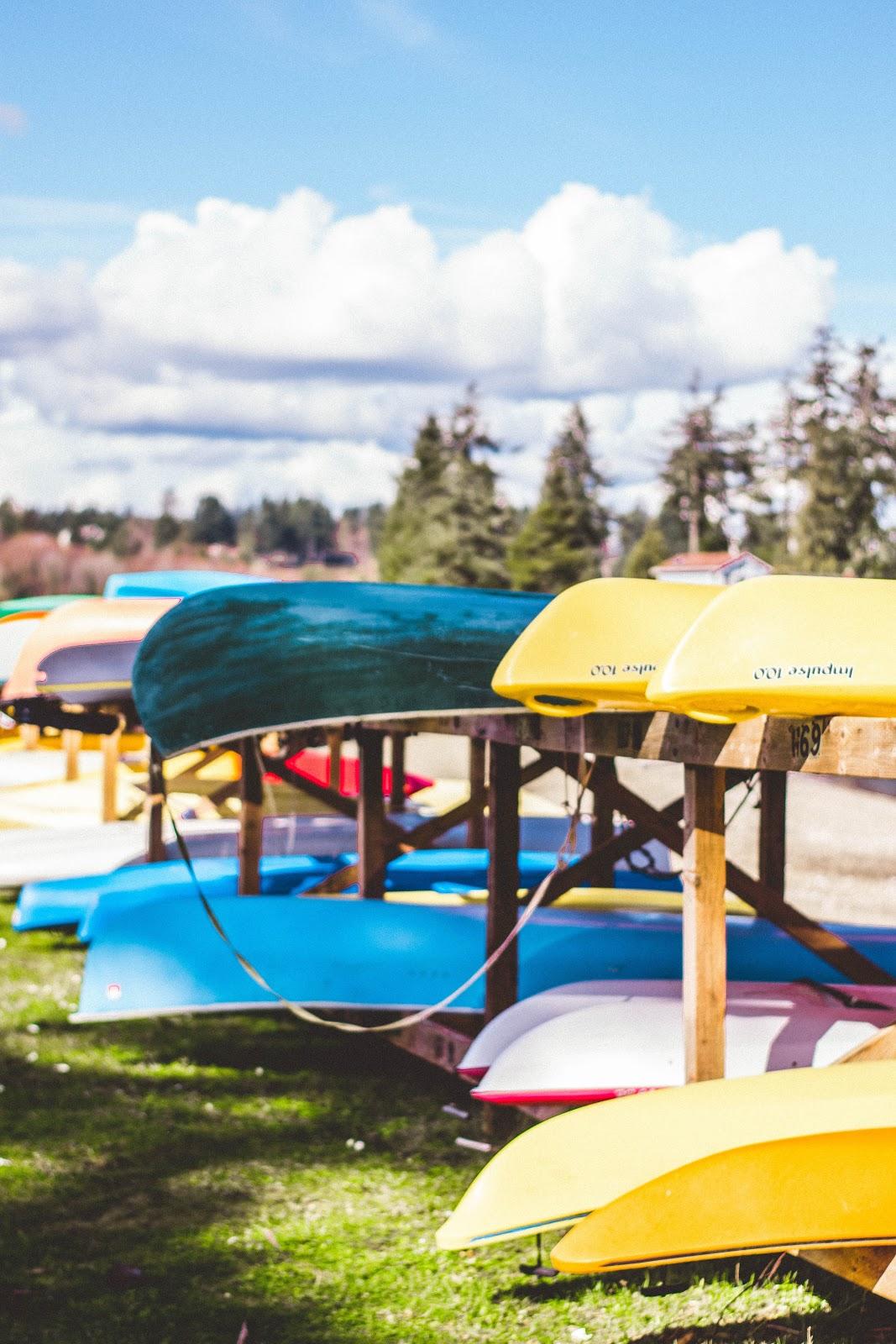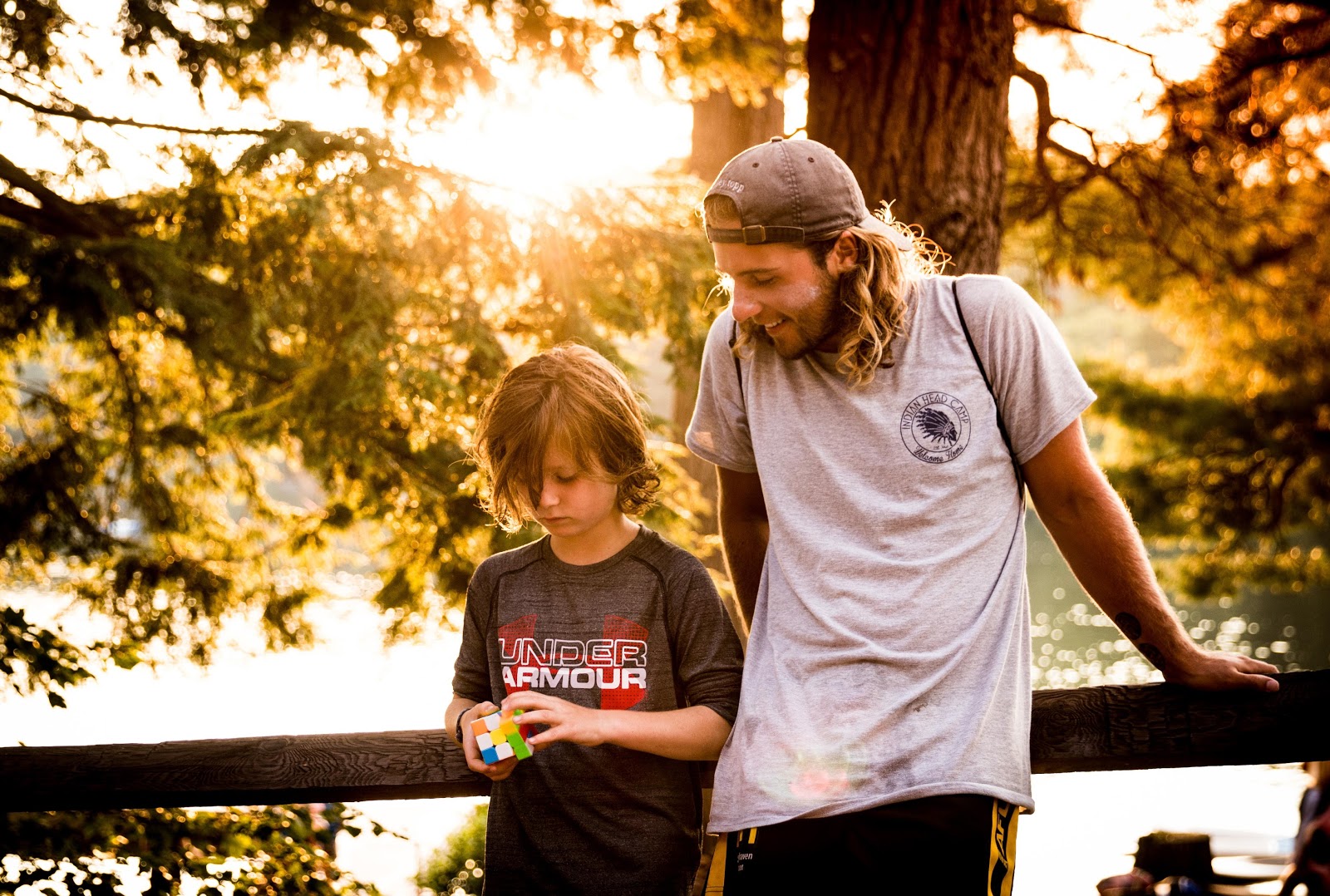The summer camp environment: it’s idyllic in every sense of the word. Lazy days spent at the lake or in the mountains, sports, group activities, new friendships, and long campfire nights – summer camp is where campers and staff make memories that last a lifetime.
Despite its peaceful nature, summer camp also presents the possibility of conflict. There are more than 14,000 summer camps in the United States, and they host almost 14 million attendees each year. With this kind of volume, there are bound to be disagreements that come up between staff, counselors, and campers here and there! Most are great opportunities to teach. But no question, getting some strategies together to minimize them before they happen is a big stress reliever.
Strong leaders know how to approach conflict maturely and productively. They find solutions that leave all parties feeling empowered and valued, and ready to work together again next time. This kind of conflict resolution is vital throughout life’s experiences, but it’s particularly critical at summer camp.
We’ve identified ten common conflict areas and laid out some simple strategies you can discuss with staff:
1. Disagreements
Disagreements are a significant source of conflict in the summer camp environment. Differences can happen between camp counselors, kids, staff, and anyone else at a camp. Part of what makes disagreements so troublesome is that they can stem from any cause or issue.
No matter what the source of the disagreement is, the solution is communication. Talking through conflict is a critical life skill that will serve kids well for years to come, so this is an excellent time for them to learn it. Counselors can support kids in this process by serving as mediators, teaching healthy communication boundaries, and helping the parties involved come to a smart solution. Having a ‘third party’ that isn’t emotionally tied up in the outcome can help the team members find common ground.
If the conflict is between faculty or counselors, the approach is the same. Communication is critical for conflict resolution and will go a long way toward promoting a cohesive and positive camp environment.
2. Confusion About Daily Schedules

Most summer camps offer a ton of activities. While this is great for kids and the experience of the camp, it can be tough for staff to follow. Occasionally, confusion happens, and people get frustrated.
To avoid misunderstandings about your camp’s schedule, follow these tips:
- Print Daily Schedules. Your camp should post its program in a common area. Each staff member on your team should also have a personal copy of the schedule, which the office should update regularly. If you’d rather not rely on paper schedules, camp management software can help create and maintain programs digitally.
- Make Communication a Priority. Staff members tend to have strong opinions about schedules, events, and activities. To ensure everyone gets to say their piece, hold weekly staff meetings. These meetings air grievances and take suggestions. Staff will make suggestions about what your camp should add, omit, or alter within the schedule. When they do, listen to those suggestions, and make proactive attempts to put them in place.
- Don’t Bite off Too Much. Over-scheduling both kids and staff is a guaranteed way to create conflict. With this in mind, be sure your camp isn’t scheduling every free moment. Instead, provide enough activities to keep the days and evenings structured. Be sure also to give staff and campers free time to enjoy just being at camp. This is a significant part of the camp experience, after all!
3. Administrative Differences
Administrative differences can cause riffs. Camp staff may have different opinions about how to run the camp, what each staff should be doing, and how things should operate with admissions, scheduling, and operations.
Since administrative conflicts involve adults, resolve them through leadership that emphasizes communication. The key to addressing these issues is to focus on creating solutions that encourage compromise.
Want to get serious about creating solutions? Digital camp management tools help administrators and leaders get organized and avoid conflict in the future.
4. Discipline
Discipline is a hot topic at summer camps. While nobody wants to imagine these places as hubs of regulation, counselors sometimes need to discipline campers. This discipline, however, carries a significant potential for conflict.
Conflict can arise between staff members who disagree on how and when to administer discipline. It can also crop up between campers who disagree with the punishment they’ve received.
Resolving these issues requires leadership to be mindful of the varying opinions. Campers may believe the disciplines they’ve received are unfair, for example, and will need a compassionate camp counselor to explain camp protocol and talk the decision out with them.
If it’s staff disagreeing about discipline, hold a meeting that allows everyone the opportunity to voice their opinion. From there, come to a conclusion that meets everyone’s needs. Bonus points if you use these listening sessions to inform your protocols going forward.
5. Recruitment and Registration
 A camp is only as good as its people – both camp leaders and campers. These individuals are the best part of any camp and are the only thing that animates your camp over anyone else’s.
A camp is only as good as its people – both camp leaders and campers. These individuals are the best part of any camp and are the only thing that animates your camp over anyone else’s.
Because of this, it’s critical for your organization to focus on finding and keeping the best possible campers. Sometimes, though, leadership disagrees about how to approach this. When these disagreements happen, recruitment and registration quickly become a source of conflict.
To avoid this, follow these simple tips:
- Develop a recruitment pipeline. It’s time to take a lesson from marketing teams! To ensure you’re bringing in great campers, start by knowing your audience. It would help if you were using many recruitment channels to target the kids and teens (and their parents) who are the best fit for your camp. Platforms like social media, local events, your website, and mailers are all great ways to do this.
- Encourage past campers to share their experience. Nothing illustrates the value of your camp quite like a recommendation from a previous camper. With this in mind, encourage campers who have attended (and loved) your camp to share their experience with others. Most leadership staff can agree that this is a great idea. For best results, include images and videos along with each camper testimonials.
- Keep everything up-to-date. It’s natural for staff to disagree about recruitment and registration. This is especially true if the process offers a poor first impression for new campers. With this in mind, camp staff must go out of their way to keep the registration process as straightforward as possible. The easiest way to do this? Invest in good camp registration software.
6. Personality Clashes
Sometimes, the conflict that arises in a summer camp environment has nothing to do with the summer camp environment, as a whole. Instead, it’s the result of personality clashes between staff, kids, or administrators.
These personality clashes are frequent – both at camp and in the world at large. Strong personalities clash. Dominate and submissive characters sometimes rub one another wrong. Simple disagreements can lead to conflict that grows throughout the summer.
Fortunately, personality clashes are as easy to resolve as they are pervasive. Most people can be cajoled into working peacefully together. Those who can’t may need to be separated or informed that there may be disciplinary action if they cannot work together effectively.
Having strong camp protocols will help, as they make it easy to refer to standards, mission statements, and camp values. This, in turn, moves everyone back to the same page and helps them stay there.
7. Leadership and Planning Styles

Clashing leadership styles are the adult version of coming-of-age struggles. In any summer camp, many leaders play different roles in the same organization.
These leaders have strong, ambitious personalities. They all love the camp and want to get things done within it. This passion means they might clash with one another during decision-making or planning phases.
Creating a good summer camp experience requires extensive planning. The more a team can plan for a summer camp program before it starts, the more successful that program will be. Unfortunately, not everyone always agrees on how to design a program.
Resolving these leadership conflicts can be difficult. The first step is to focus on improving communication and relationships between team members.
From there, camp leaders can ease these tensions with a summer camp planning checklist. We’ve got a great one on our blog – check it out here.
8. Resource Allocation
Most summer camps have limited resources. Unfortunately, disagreements about what to do with these resources can create conflict between leaders and administrators. Here are a few tips leaders can use to ensure everyone is working together when it comes to resources:
- Keep discussions within the leadership staff. Because this is a camp conflict that involves leadership, not kids, it’s a conflict your team must resolve at the staff level. While taking input from campers can help you decide which programs are truly worth your time, administrators are the ones who need to make these decisions.
- Make time to do it right. Resolving these camp conflicts may require several meetings where staff members all put their heads together. The time you invest will be worth it, though. Resolving resource disputes is a great way to identify opportunities for improvement. It can also help you identify ways to allocate resources in ways that leadership agrees on.
- Open all lines of communication. If you’d like to take your approach a step further, focus on creating a post-camp communication platform. Giving feedback should be smooth and accessible. Leadership and administrative staff should put in place the feedback they get from counselors and campers. Not only does this help you make better use of resources in the future, but it makes campers want to come back to camp. It also has the potential to uncover some excellent ideas that you can use in your camp program going forward.
9. Relationships
While some summer camps prohibit relationships between counselors, that doesn’t always discourage people from engaging in them. Relationships are some of the most common causes of conflict in the summer camp environment.
How leaders resolve these issues depends on the nature of the relationship. Relationships between children, for example, are usually benign and mostly unavoidable. Leadership, in these cases, must provide supervision and chaperone services.
If the relationships are between administrators or leadership, the approach should be different. In these cases, administrators will have to decide on standards of practice for connections in the camp.
No matter what your policy on relationships at camp is, your leadership needs to communicate this from the get-go. People run the show at summer camp, and having a great team is critical. Focusing as much as possible on building a reliable, professional, competent team without a ton of internal drama ensures attention stays where it’s supposed to be – on your campers.
10. Weak Teams
For counselors, summer camp is a unique working environment. When you think about it, there aren’t many other professions where people live, work, eat, and play together for three months at a time or more.
Because of the proximity required by the summer camp experience, it’s essential for teams to work well together. When teams are poorly-bonded or have internal differences, though, this can be a real challenge.
This is where team building activities come in.
Designed to boost communication, cooperation, and friendship between camp counselors, team building activities help you take a preventative approach to conflict. They also ensure that everyone works together like a big happy family (as much as possible, of course).
Camp Conflict Solutions and Smart Leadership
One of the most significant benefits of summer camp is that it teaches lessons that last a lifetime. This is as true for campers as it is for faculty and staff. Today, one of the greatest lessons summer camps can teach everyone involved is how to resolve conflict in a healthy, productive, respectful way.
Whether the conflict crops up between staff members, kids, or a combination of the two, learning healthy conflict resolution skills now will benefit everyone for years to come. Plus, when camp leadership demonstrates positive camp conflict resolution skills, it sets an example for the kids who are involved, as well as the ones who aren’t.
Understanding the most common roots of camp conflict is the first step toward a healthy conflict response. From there, each camp will take their unique approach to conflict resolution!
Looking for tools that will help you streamline and improve your summer camp’s processes? Contact CampMinder today to get more tips and tricks, or check out the platform and how it can facilitate program management and communication for your team.
